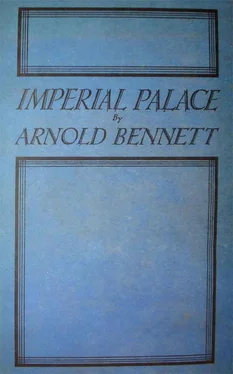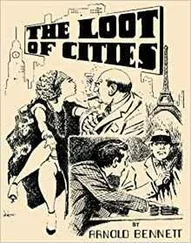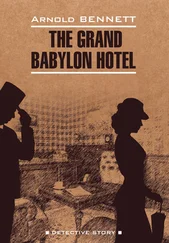Arnold Bennett - Imperial Palace
Здесь есть возможность читать онлайн «Arnold Bennett - Imperial Palace» — ознакомительный отрывок электронной книги совершенно бесплатно, а после прочтения отрывка купить полную версию. В некоторых случаях можно слушать аудио, скачать через торрент в формате fb2 и присутствует краткое содержание. Жанр: unrecognised, на английском языке. Описание произведения, (предисловие) а так же отзывы посетителей доступны на портале библиотеки ЛибКат.
- Название:Imperial Palace
- Автор:
- Жанр:
- Год:неизвестен
- ISBN:нет данных
- Рейтинг книги:4 / 5. Голосов: 1
-
Избранное:Добавить в избранное
- Отзывы:
-
Ваша оценка:
- 80
- 1
- 2
- 3
- 4
- 5
Imperial Palace: краткое содержание, описание и аннотация
Предлагаем к чтению аннотацию, описание, краткое содержание или предисловие (зависит от того, что написал сам автор книги «Imperial Palace»). Если вы не нашли необходимую информацию о книге — напишите в комментариях, мы постараемся отыскать её.
Imperial Palace — читать онлайн ознакомительный отрывок
Ниже представлен текст книги, разбитый по страницам. Система сохранения места последней прочитанной страницы, позволяет с удобством читать онлайн бесплатно книгу «Imperial Palace», без необходимости каждый раз заново искать на чём Вы остановились. Поставьте закладку, и сможете в любой момент перейти на страницу, на которой закончили чтение.
Интервал:
Закладка:
Gracie had reached the hotel, in the middle of the night, without any clear purpose in mind. She had loved with violence more than once, but never wisely. She now had no attachment—and only one interest: reading. She had suddenly discovered reading. Shakspere had enthralled her. On the Atlantic voyage she had gulped down two plays of Shakspere a day. At present, for her, it was Shakspere or nothing. The phenomenon was beyond her father; but it flattered his paternal vanity, demonstrated to him that he had begotten no common child. First racing, now Shakspere! Something Homeric about Gracie, and she his daughter! Out of Shakspere and other special reading, a project was beginning to shape in the girl’s soul, as nebulæ coalesce into a star. But it was yet too vague to be formulated. Then the hotel. Then Evelyn Orcham, whose name Sir Henry had casually mentioned to her with candid respect. Then the prospect of fabled Smithfield before dawn. Evelyn had impressed her at the first glance: she did not know why. And she divined that she in turn had impressed him. She admired him the more because he had not leapt at her suggestion of going with him to Smithfield, because for a few moments he had shown obvious reluctance to accept it. Not a man to be swept off his feet. A self-contained, reserved man. Shy. Quiet. Almost taciturn, with transient moods of being confidential, intimate. Mysterious. Dangerous, beneath a conventional deportment. You never knew what might be hidden in the depths of a man like that. Enigmatic. Diffident; but very sure of himself. In short . . . was he married? Had he a hinterland? Well, his eyes didn’t look as if he had.
And now she was in Smithfield, and her prophetic vision of it, her hopes of it, had been right. Smithfield had not deceived her. A romantic microcosm of mighty males, with a redoubtable language of their own. A rude, primeval, clean, tonic microcosm, where work was fierce and impassioned. A microcosm where people got up early and thought nothing of getting up early, and strove and haggled and sweated, rejoicing in the purchase and sale of beef and mutton and pork. To get up early and strive, while the dull world was still asleep: this it was that appealed to Gracie. Freshness and sanity of earliest dark cool mornings! She wanted to bathe in Smithfield as in a bath, to drench herself in it, to yield utterly to it. Smithfield was paradise, and a glorious hell.
Chapter VI – BIRTH OF DAY
I
“Ah! There’s Cradock,” said Evelyn. “He’s our buyer. I’ll introduce him to you. The little man there. The one that’s sticking a skewer into that lamb.”
Gracie recognised the man who had been waiting in the great hall of the hotel. Having stuck the skewer into the carcass, Jack pulled it out and put it to his nose. Then, while Evelyn and Gracie watched, he stuck a skewer into the next lamb, and finally left a skewer in each lamb: sign that they were his chosen.
“Chines and ends,” Gracie heard him say, as he scribbled in a notebook.
He saw Evelyn.
“Here we are, Cradock,” said Evelyn. “This is Miss Savott. Knows all about motor-racing. Now she wants to know all about Smithfield.”
Jack clasped her slim hand in his thick one.
“I do think your market is marvellous, Mr. Cradock!” Gracie greeted him, genuine enthusiasm in her emotional low voice. Her clasp tightened on the thick hand, and held it.
“Glad to meet you, miss.”
“It’s so big and so clean. I love this blue paint.”
“Glad to hear that, miss. There’s some of ’em would sooner have the old green . . . a bit of it over there.” He pointed.
“That’s nice too. But I prefer the blue, myself.”
Jack was conquered at once, not by her views on blue and green paint, but by her honest manner, by her beauty, and by the warmth of her trifling, fragile, firm fingers. He thought, “Governor knows what’s what. Trust him!” And since the relations of men and women are essentially the same in all classes, and his ideas concerning them had been made robust and magnanimous by many contacts with meat-salesmen of terrific physique, he began privately to wish the governor well in whatever the governor might be about. Anyhow it was none of his business, and the governor could indeed be trusted, had nothing to learn.
“You see those lambs, sir,” he murmured. “I guarantee there isn’t ten lambs like them in all London to-day!”
Evelyn nodded. The carcasses were already lifted off their hooks. Gracie saw them put on a huge carving block, and watched a carver in bloody blue divide them with a long razor-knife and a saw. In a moment the operation was performed, and so delicately and elegantly that it had no repulsiveness. The carvers were finished surgeons for Gracie, not butchers.
“That’s got to be served for lunch at the hotel this morning,” said Jack to her. “We hang the beef for five or six days—used to hang it for twelve or fourteen. But you ladies and gentlemen alter your tastes, you see, miss, and we have to follow. You see all that calves’ liver there. Not so many years ago, I could buy as much as I wanted at sixpence a pound. Would you believe me, it costs me two shillings these days! All because them Harley Street doctors say it’s good for anæmia.” He turned to Evelyn: “That’s Charlie Jebson, governor. Next door.” He jerked his head.
“Let’s go and talk to him,” said Evelyn, easily.
Mr. Charles Jebson was a very tall man, with a good figure, and dandiacal in dress.
“This is my governor, Mr. Orcham, Charlie. And this is Miss Savott, come to see what we do up here. Mr. Charles Jebson.”
Charles became exceedingly deferential. He shook hands with Gracie like a young peer in swallow-tails determined to ingratiate himself with a chorus-girl. Gracie smiled to herself, thinking: “What a dance I could lead him!”
“You do get up early here, Mr. Jebson,” she said. “When do you sleep?”
“I don’t, miss,” he replied, smirking. “At least—well, three or four hours. Make it up Sundays. Perhaps you know the ‘Shaftesbury,’ in Shaftesbury Avenue. Express lunch and supper counter. That’s mine. They call me ‘the governor’ there, when I go in of a night to tackle the books and keep an eye on things. Not so much time for sleep, you’ll freely admit.” Gracie’s notion of him was enlarged. White coat before dawn. Restaurateur in the centre of theatre-land at supper-time! A romantic world!
“It’s all too marvellous!” she said admiringly.
Charlie showed pride. A procession of four laden porters charged blindly down the avenue, shouting. Gracie received a glancing blow on the shoulder. She spun round, laughing. Jack moved her paternally away to shelter. A nun, hands joined in front, eyes downcast, walked sedately along the avenue, a strange, exotic visitant from another sphere. The spectacle startled Gracie, shaking all her ideals, somehow shaming her.
“Why is she here?” she demanded of Jack with false casualness.
“I couldn’t say, miss, for sure. Little Sister of the Poor, or something. Come for what she can get. Food for orphans, I shouldn’t be surprised. They’re very generous in the Market.” He added discreetly, as Gracie made as if to return to Evelyn, “Governor’s got a bit of business with Mr. Jebson.”
“Oh yes.” And she asked him some questions about what she saw.
“Refrigerators,” he said. “Thirty years ago when I first came here there wasn’t an ice-box in the place.”
Gracie could overhear parts of the conversation between Charlie and Evelyn. Evelyn laughed faintly. Charlie laughed loudly. It went on.
“I hope we shall be able to continue to do business together, Mr. Jebson,” Evelyn said at length.
“It won’t be my fault if we don’t, sir,” Charlie deferentially replied.
Читать дальшеИнтервал:
Закладка:
Похожие книги на «Imperial Palace»
Представляем Вашему вниманию похожие книги на «Imperial Palace» списком для выбора. Мы отобрали схожую по названию и смыслу литературу в надежде предоставить читателям больше вариантов отыскать новые, интересные, ещё непрочитанные произведения.
Обсуждение, отзывы о книге «Imperial Palace» и просто собственные мнения читателей. Оставьте ваши комментарии, напишите, что Вы думаете о произведении, его смысле или главных героях. Укажите что конкретно понравилось, а что нет, и почему Вы так считаете.












